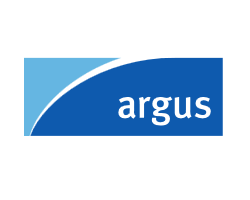
 











|
Signature Sponsor


By Antonio delos Reyes and Andrew Jones November 7, 2023 - Indonesia's energy ministry (ESDM) has rejected the mining Work Plan and Budgets (RKABs) of 51 coal producers this year, amounting to total proposed output of 7.8mn t. The ESDM received 948 applications for 2023, of which it approved 890 with seven still being processed, it said. The ESDM said that it rejected the RKAB submissions based on various grounds. Some were rejected because of administrative issues such the failure to remit non-tax state revenue (PNBP) payments, constraints on feasibility studies and environmental impact analyses, as well as technical factors such as issues with forest area borrow-use permits. Coal producers are required to have a government-approved RKAB before they can continue mining operations in a given year. A RKAB details the target output of a mining company for that year, with it used by the ESDM in determining the national production target for the entire coal mining sector. The ESDM is targeting production of 694.5mn t this year. Indonesia produced 624.05mn t during January-October, according to ESDM data issued at the start of November. Indonesian authorities said earlier this month that they had approved revised RKABs of a number of Indonesian coal producers, lifting supplies of spot cargoes. Of the rejected RKABs, 22 were proposed revisions of RKABs that had been approved earlier this year. The ESDM said that it received RKAB revision requests from 84 coal producers, out of which it approved 38 applications. A total of 12 applications were returned to the companies pending additional requirements, while another 12 are still being processed, the ESDM said. Coal producers that have fulfilled their domestic market obligation quota under current Indonesian mining rules can request for an increase in their production output of up to 10pc of their originally approved RKAB. But these revisions are still subject to approval from the ESDM. The Indonesian Coal Mining Association (APBI) welcomed the stricter approval process, saying that better government oversight helps improve the sector's business climate. By ensuring that coal mining companies have fulfilled their regulatory requirements before they can operate for the year, the country can maximise revenues generated from its natural resources, the APBI said. Simplification Indonesia has already launched an E-RKAB work plan system to facilitate revised RKAB approvals. The E-RKAB work plan system aims to simplify its standard operating procedures and business processes in licensing and supervision of the mineral and coal mining sectors. The ESDM started its evaluation in August on the streamlining of business processes, aiming to address delays in the processing of requests from mining companies, a request that industry participants have repeatedly asked for. The E-RKAB is an expansion of the ESDM's digitalisation and integration of several oversight and monitoring programmes such as the E-PNBP, Mineral One Monitoring System and the Marketing Verification Module. Indonesian coal supplies had previously been pressured by a series of system issues as the country tries to modernise and integrate the processes involved in exports. The country has integrated its systems for recording coal production, barging, survey and royalty payment, among other steps, as part of its move to streamline its processes. Indonesian thermal coal supplies have come under pressure as an integrated system for tracking shipment reports submitted by surveyors faced disruptions. A number of producers also previously faced delays in getting revised RKABs approved by the authorities. |
 







|